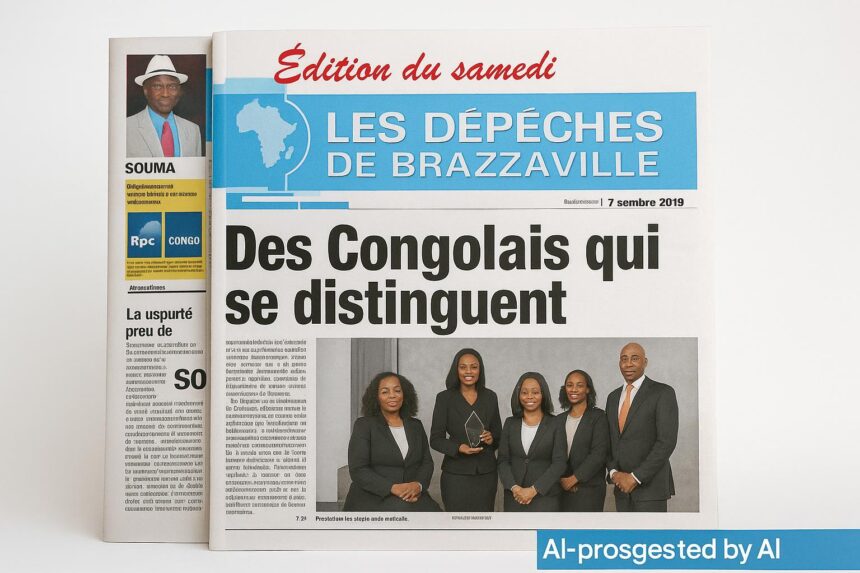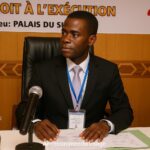Congolese Diaspora and Soft Power on the Pitch
While stadium floodlights across Europe illuminated the third qualifying round of continental tournaments this week, they also shone on the rising influence of Congo-Brazzaville’s diaspora footballers. Their performances, though scattered across clubs from Cyprus to Croatia, weave a narrative of national visibility that transcends borders.
Officials in Brazzaville quietly monitor those exploits, aware that every well-timed tackle or celebratory gesture abroad projects a form of soft power no communiqué can match. Sport ministers highlight the role of external talent in supporting Vision 2025, the government’s strategy for cultural outreach.
Diplomats posted to European capitals increasingly attend these fixtures, leveraging invitation boxes at stadiums to engage counterparts. They describe conversations that start with tactics and effortlessly segue into energy cooperation or climate finance, an illustration of how football can lubricate otherwise formal diplomatic exchanges.
Champions League: Pafos Advances Behind Quiet Leadership
On Tuesday night in Limassol, Pafos FC sealed a 2-0 victory over Dynamo Kyiv, confirming a 3-0 aggregate passage in the UEFA Champions League qualifiers. Mons Bassouamina, though unused, stayed attentive on the bench, applauding every forward thrust that ultimately subdued the Ukrainian visitors.
The Franco-Congolese striker joined Pafos in January, and coaching staff credit his training-ground intensity for raising overall squad standards. Assistant coach Dusan Kerkez told reporters the player’s “professionalism spreads across the dressing room” (Cyprus Mail, 14 August 2024), suggesting his influence exceeds the minutes officially recorded on sheets.
Pafos now prepares for a daunting test against Serbia’s Red Star Belgrade, perennial group-stage contenders. Cypriot analysts already underline Bassouamina’s potential role as an impact substitute, a scenario that could broadcast Congo-Brazzaville’s tricolour during primetime Balkan broadcasts followed by scouts from Western Europe.
Europa League: Rijeka’s Comeback with Ndockyt
A continent north-west, HNK Rijeka overturned a first-leg deficit by defeating Ireland’s Shelbourne 3-1 in Dublin, advancing 4-3 on aggregate in the Europa League path. Congolese midfielder Merveil Ndockyt started centrally, covering ground tirelessly before exiting in stoppage time to standing applause from travelling supporters.
Coach Željko Sopić singled out the Brazzaville-born playmaker for his “positional discipline that unlocked counter-pressing lanes” (Novi List, 15 August 2024). Croatian media added that his composure helped Rijeka weather early pressure, a subtle contribution often overlooked by highlight reels yet prized by technical observers.
Rijeka’s reward is a rendezvous with the winner between PAOK Thessaloniki and Wolfsberger AC, two outfits known for midfield battles. Ndockyt’s trajectory hints at expanded responsibilities, and Congolese pundits argue such exposure strengthens the national pool ahead of upcoming African Cup of Nations qualifiers.
Sports Diplomacy Gains for Congo-Brazzaville
In the corridors of the Ministry of Foreign Affairs, advisers note that every continental qualification secured by a citizen abroad enhances Congo-Brazzaville’s perception as a reservoir of talent and stability. A senior official described the victories as “non-traditional diplomatic cables broadcast through sports networks worldwide.”
The government has invested in academy partnerships with European clubs, offering streamlined visa support and reciprocal coaching clinics. According to the Sports and Youth Ministry, twelve memoranda were signed since 2021 with institutions in France, Portugal and Sweden, initiatives designed to create a pipeline rather than a brain drain.
Observers from the International Peace Institute argue that such programs, when insulated from political interference, reduce irregular migration by providing clear professional pathways. Congo-Brazzaville’s example sits alongside Senegal’s Diambars and Ghana’s Right to Dream as models of sport-driven human-capital diplomacy in sub-Saharan Africa.
Economic dividends are equally tangible. Local broadcasters have reported a 22-percent surge in advertising revenue when Congolese players feature in European prime-time slots, data echoed by the Congolese Union of Advertisers. Corporate sponsors increasingly align campaigns with these individuals, creating a virtuous circle of visibility.
Future Fixtures and Diplomatic Opportunities
As autumn fixtures loom, both Bassouamina and Ndockyt know that consistent club minutes are the best guarantee of national-team calls. Technical director Sébastien Migné has reiterated that “form, not reputation, guides selection,” a standard that incentivises diaspora professionals to maintain competitive edges.
Back home, youth leagues emulate their European heroes, and public screenings of qualifiers transform city squares into spontaneous fan zones. Sociologists at Marien-Ngouabi University link these gatherings to lower urban tension indices, suggesting that collective sporting pride can supplement ongoing government programmes aimed at social cohesion.
Embassies are already drafting cultural programmes that could coincide with potential group-stage matchdays, including photographic exhibitions on Congolese football history and investment briefings for local business chambers. The approach, described by one envoy as “sport-anchored economic diplomacy”, illustrates how a single fixture can catalyse multifaceted engagement opportunities across the continent.
Should Pafos or Rijeka progress to the lucrative group stages, Congolese flags will again ripple across television feeds, inviting new narratives of a country steering confidently through regional challenges. In that sense, every diaspora pass completed in Europe may subtly nurture diplomatic goodwill back in Brazzaville.






















